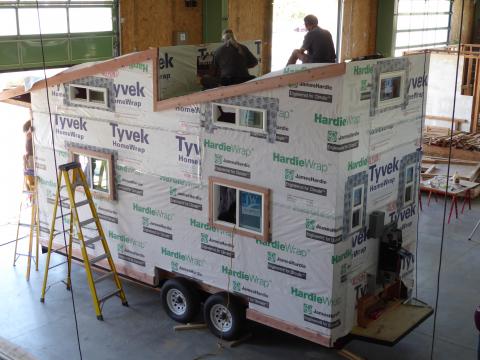Project Archive
As part of the Sustainability Studies minor, and in collaboration with researchers, projects and center inside and outside of UCSC, Rachel Carson College supports the Sustainable Living Systems Undergraduate Research Program (SLURP). SLURP operates in collaboration with the S-lab, a collaboration among RCC, the School of Engineering and Physical and Biological Sciences, and the Art Department, to provide work and makerspace and incubator facilities for student-led projects. It provides functional indoor (at Thiman Labs) and outdoor (at the Arboretum) research laboratories, workshops, prototyping and test equipment, meeting rooms and gathering spaces that allow students to work on and develop sustainability projects. Students in the Sustainability Studies minor and the Sustainable Living Undergraduate Research Program will have access to the new S-Lab. Please click on the links below to see some of the Sustainability-related research projects in which Sustainability Studies students participate.
Ecotopia House: A UCSC-Cabrillo College Construction Collaboration
The UCSC-Cabrillo College Ecotopia House is a "tiny house" designed to minimize residential ecological footprint through both construction and operation.More sustainable technologies promise new techniques for reducing residential greenhouse emissions, as this project hopes to explore. Our aim is to design a low-cost, zero-net energy 1-2 person home that is easily reproducible, using recycled materials where possible, and providing housing with as little environmental impact as possible. For more information, see "Ecotopia House--The Journey Continues."
UCSC µ = Multi-use Micro Pod
Students are building UCSC µ at the Arboretum. This is a portable secure storage unit net zero micro grid (using solar/wind) smart systems integration optional sleeping area trailer bed dimensions limited to 4’ x 8’ Pod can extend a max width of 8’ and 12’ height max allowable weight 1800 lbs. use recycled / reclaimed / donated materials water storage creative and aesthetically pleasing design. You can learn more about this project here.
Urban Agriculture Research ProgramMicrogrid Development & Energy User Behavior
Decarbonization of our energy infrastructure requires a fundamental shift from highly concentrated and easily transportable fossil fuels to a more decentralized and diffuse renewable resources. In the case of electricity, it will require replacing a hierarchical infrastructure based on large generating plants to a networked, heterogeneous system. This project aims to create the development of a sophisticated, interactive, neighborhood scale microgrid. For more information, see: https://projectclearinghouse.ucsc.edu/microgrid-development-energy-user-behavior.
UCSC Transit EV FeasibilityRenewable Energy Development Assistance Project
A primary driving motivation of greenhouse growers is to reduce their operating costs. Greenhouses consume electricityfor pumps, wells, refrigeration and lighting. Because greenhouse growing tends to be a low-margin business, energy savings translate into more funds available for improvements to the operation as well as a cushion in the event of crop failure. The goal of this project is to train student interns to conduct greenhouse energy assessments, with an eye toward conversion to Soliculture (http://www.soliculture.com/) systems that generate electricity even as they transmit sunlight. This project is funded by a REDA grant from the U.S. Department of Agriculture. For more information, see: slurpreda.blogspot.com

